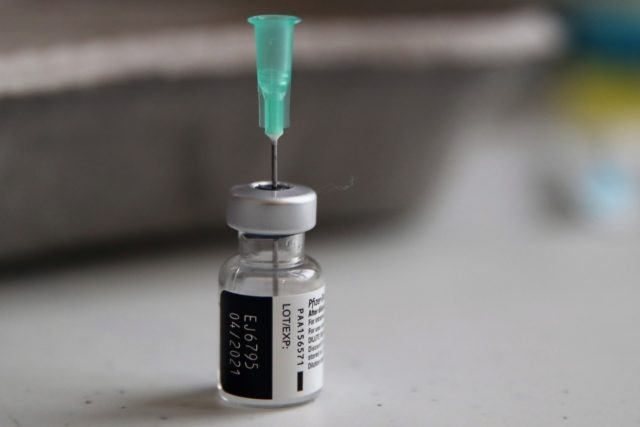The Pfizer-BioNTech coronavirus vaccine’s efficacy dropped from 96 percent to 84 percent over six months, according to data published Wednesday.
STATNews.com reports:
The data, released in a preprint that has not been reviewed by outside scientists, suggest the vaccine was 91% effective overall at preventing Covid-19 over the course of six months. In the ongoing study, which enrolled more than 44,000 volunteers, the vaccine’s efficacy in preventing any Covid-19 infection that causes even minor symptoms appeared to decline an average of 6% every two months after administration. It peaked at more than 96% within two months of vaccination and slipped to 84% after six months. Against severe disease, which includes people with low blood oxygen levels or who are hospitalized, the overall efficacy of the vaccine was 97%.
In April, Moderna said that its vaccine was 90 percent effective against symptomatic COVID-19 and 95 percent effective against severe disease after six months, STAT notes. Johnson & Johnson has not released its data on six-month efficacy.
Dr. Anthony Fauci, the White House’s Chief Medical Adviser, has repeatedly stated that Americans are likely to require a booster vaccine within a year to protect themselves from the coronavirus.
“I think we will almost certainly require a booster sometime within a year or so, after getting the primary [shot], because the durability of protection against coronaviruses is generally not lifelong,” Fauci said in May at an event was organized by Axios and sponsored by PhRMA, a trade organization representing the pharmaceutical industry.
“Every year, you need to go to get your flu vaccine,” he said. “It’s going to be the same with COVID. In a year, you will have to go and get your annual shot for COVID to be protected.”
Today’s data release regarding the Pfizer-BioNTech coronavirus vaccine comes as President Joe Biden is considering requiring federal employees to present proof of vaccination against the virus or otherwise undergo regular testing.
The possible vaccine mandate for federal employees — regardless of the rate of transmission in their area — is one option under consideration by the Biden administration, according to a person familiar with the plans who spoke on condition of anonymity to discuss deliberations that have yet to be made public. The White House is expected to announce its final decision after completing a policy review this week.
The Associated Press contributed to this report.

COMMENTS
Please let us know if you're having issues with commenting.